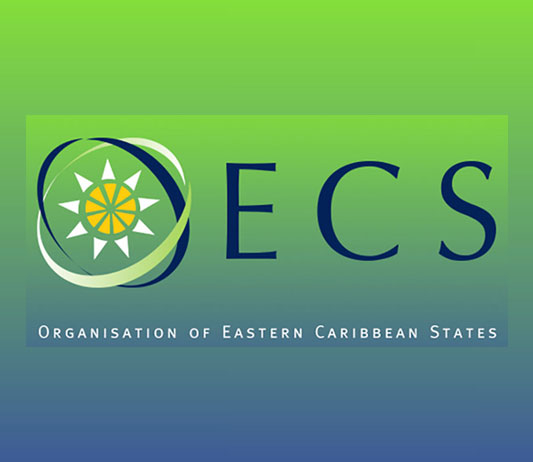Kingstown, St Vincent and the Grenadines, May 09, 2016-The Second Meeting of the OECS Council of Ministers (Foreign Affairs) was convened in St. Vincent and the Grenadines on 8th May 2016 under the Chairmanship of that country’s Minister for Foreign Affairs, the Hon. Sir Louis Straker.
The Foreign Minister of St Vincent and the Grenadines accepted the mantle of Chairmanship of the Council from outgoing Chairman the Hon. Alva Baptiste, Minister for External Affairs, International Trade and Civil Aviation of Saint Lucia. The outgoing Chairman pointed to the achievements of the OECS during his tenure, including the accession of Martinique to membership of the Organisation, and the leadership role played by the region in championing the cause of Small Island Developing States at the meeting of the United Nations Framework Convention on Climate Change (COP 21) which took place in Paris in November and December of last year.
The incoming Chair expressed the hope that the Council would continue to address the business of the OECS in an efficacious manner. He urged his colleagues to: “… be committed to ensuring that the process of integration continues to be effective and economically and socially viable for our people”. He stressed the importance of adopting common positions on international issues, and exhorted his colleagues to:“continue to ensure that we do not present disparate voices when we participate in international fora”.
The Second Meeting of the Council of Ministers (Foreign Affairs) was convened against the backdrop of profound and dramatic changes taking place on the geopolitical front and offered the Ministers of Foreign Affairs of OECS Member States the opportunity to contribute to the process of designing and fashioning responses to the challenges confronting the region as a result of those changes. According to the OECS Commission’s Head of International Relations, Anthony Severin: “The Council of Ministers (Foreign Affairs) has a critical role to play in the design and fashioning of responses at the national and regional levels that will allow our countries and institutions to maintain relevance, to survive, and to thrive in the ever-changing international milieu”.
The Council considered a wide range of issues including the external representation of Member States, relations with Third States, progress towards the realization of the OECS Single Domestic Space, United Nations matters, relations with the EU post Cotonou and matters relating to hemispheric institutions such as the ACS, CELAC and the OAS.
The Council committed itself to remain engaged on these and other matters under its purview. For its part, the OECS Commission assured the Council of its full support in the furtherance of its work.






